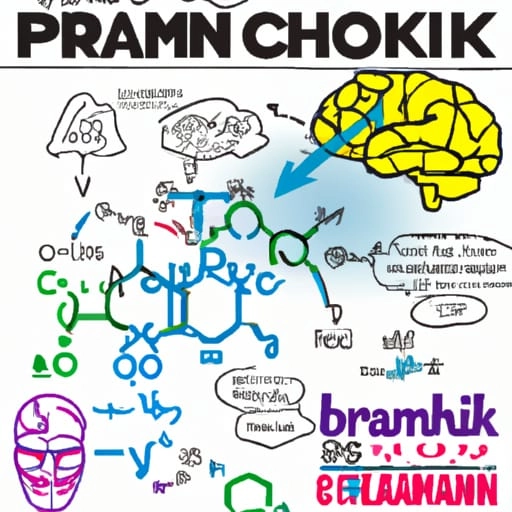Can Self-Determination Theory Explain Depression?

Depression is a common mental health issue that affects millions of people worldwide. Despite extensive research into depression, the causes and effective treatments are still not fully understood.
One theoretical perspective that may shed light on the development and treatment of depression is self-determination theory (SDT).
This theory suggests that people have basic psychological needs that must be met to achieve well-being and growth. In this blog, we will explore how SDT can explain depression and its symptoms.
Understanding Self-Determination Theory
Self-determination theory (SDT) is a theory of motivation that suggests that people have three basic psychological needs: autonomy, competence, and relatedness. These needs are necessary for psychological health and growth.
Autonomy refers to the need to feel in control of one’s own life and decisions. Competence refers to the need to feel capable and effective at achieving goals.
Relatedness refers to the need for social interaction and connection with others.
SDT also distinguishes between two types of motivation: intrinsic and extrinsic.
Intrinsic motivation is when people engage in activities because they find them enjoyable or interesting.
Extrinsic motivation, on the other hand, is when people engage in activities because of external rewards or pressure.
Previous Research on Self-Determination Theory and Depression
Research has shown that low need satisfaction, which occurs when basic psychological needs are not being met, is related to negative affect, or negative feelings such as depression and anxiety.
SDT has been applied to different contexts, including education, healthcare, and physical activity, with similar results.
For example, studies have found that university students with low need satisfaction are at higher risk for depressive symptoms and that autonomous motivation for physical activity is associated with greater satisfaction and positive affect.
SDT can explain depression as a result of low need satisfaction.
When people’s basic psychological needs are not being met, they may experience negative emotions and feelings of helplessness.
This can lead to symptoms of depression and other mental health issues.

The Role of Basic Psychological Needs in Depression
According to SDT, when people’s basic psychological needs are not being met, they may engage in behavior change to try to meet those needs.
However, if the behavior change is driven by extrinsic motivators, it may have negative effects on psychological well-being.
For example, if someone starts exercising only to lose weight or to receive external rewards, they may not experience the positive growth and psychological health benefits associated with autonomous motivation for physical activity.
In contrast, if behavior change is driven by intrinsic motivation, it can have a significant impact on psychological well-being. For example, if someone starts exercising because they enjoy it and find it satisfying, they are more likely to experience positive emotions and personal growth.
SDT also suggests that meeting basic psychological needs can have indirect effects on physical health.
For example, social interaction and peer support in a team sport can lead to greater satisfaction and positive affect, which may help reduce the risk of heart attacks and other physical health problems.
Future Research and the Importance of Contextual Information
While there is extensive research on SDT and its application to different contexts, there is limited research on SDT and depression specifically. However, the present research suggests that SDT can provide a new perspective on depression and its symptoms.
SDT suggests that people with depression may have low need satisfaction and may benefit from interventions that focus on meeting their basic psychological needs.
Future research should explore the role of basic psychological needs in depression and the effectiveness of interventions that target these needs.
It is important to consider contextual information, such as personality traits, social support, and career path, when applying SDT to depression. For example, some people may have different basic needs or may require different types of support to achieve need satisfaction.
In different contexts, such as weight loss programs, healthcare providers and professionals can play a critical role in supporting individuals in achieving their goals.
While extrinsic motivators, such as a desire to fit into a certain clothing size, can provide initial motivation, sustainable behavior change often requires meeting core needs and developing intrinsic motivation.
Healthcare providers can help individuals identify their reasons for wanting to lose weight and work with them to develop a plan that meets their basic psychological needs, such as autonomy, competence, and relatedness.
They can provide support and guidance to address the side effects of weight loss and help individuals stay focused on their current situation and personal life goals. By taking a self-determination approach, healthcare professionals can empower individuals to make lasting changes that support their physical and psychological health.
There are different ways in which self-determination theory (SDT) can be applied to understanding mental health and the treatment of disorders such as anxiety and depression. Previous studies have identified core needs as a key factor in understanding these conditions, including the need for autonomy, competence, and relatedness.
Risk factors for anxiety disorders and depression can include low need satisfaction, external stressors, and trauma. In recent decades, the self-determination approach has gained popularity among healthcare providers and professionals as an effective treatment method.
This approach emphasizes the importance of supporting individuals in achieving their goals and meeting their basic psychological needs, rather than relying on extrinsic motivators such as rewards or pressure. Healthcare providers can help individuals identify their core needs and develop new skills to achieve their goals.
They can also provide support and guidance to address the side effects of treatment and help individuals stay focused on the present moment and their personal life goals.
In different contexts, such as group therapy or individual counseling, the self-determination approach can be a common factor in effective treatment for mental health issues. It is important for healthcare professionals to recognize the need for support and the value of meeting core needs in helping individuals achieve lasting change and personal growth.

Conclusion
In conclusion, self-determination theory can explain depression as a result of low need satisfaction. When people’s basic psychological needs are not being met, they may experience negative affect and symptoms of depression.
SDT suggests that interventions that focus on meeting basic needs, such as social interaction and personal growth, may be effective treatments for depression.
It is important to consider the context in which people experience depression when applying SDT. For example, young people’s experience of depression may differ from older adults, and the types of interventions that are effective for one group may not be effective for the other.
In addition, healthcare professionals should be aware of the harmful effects of extrinsic motivators on behavior change and psychological well-being.
They should encourage autonomous motivation for behavior change, such as a healthy diet or regular physical activity, to help people achieve their goals and meet their basic psychological needs.
Overall, SDT provides a useful theoretical perspective on depression and its symptoms.
By understanding the role of basic psychological needs in depression, we can develop effective interventions that focus on meeting those needs and promoting positive growth and psychological health.






